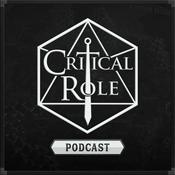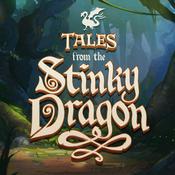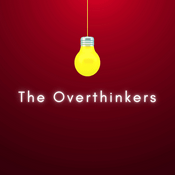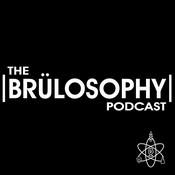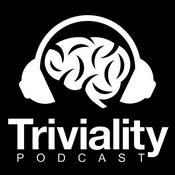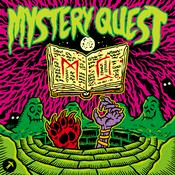275 episodes
Tucker Carlson's Middle East Travels Spark Controversy and Divide the Conservative Movement
2/11/2026 | 2 mins.Tucker Carlson has been making waves with his recent Middle East travels, including a trip to Jordan and an expected visit to Israel, where officials reportedly considered but ultimately rejected denying him entry to avoid diplomatic fallout, according to The Jerusalem Post and HaTzinor reports. In a new video from the region, Carlson highlighted what he described as oppression of Christians in Jerusalem by Israel, contrasting it with greater religious freedom for Christians in Jordan, where he interviewed local Christian leaders who praised Muslim-Christian harmony. He sharply criticized US Ambassador to Israel Mike Huckabee for failing to defend Jerusalem's Christians and ignoring attacks on Palestinian Christians by Israeli settlers.
This sparked a public feud, with Huckabee challenging Carlson on X to interview him directly instead of talking about him, and Carlson quickly agreeing, setting up what could be their first face-to-face since the spat began. Israel Hayom and the Jewish Telegraphic Agency note the exchange has deepened rifts in the conservative movement over Israel, antisemitism accusations, and Christian Zionism, with Huckabee questioning if Carlson hides any love for Jews.
Earlier this week at the World Government Summit 2026 in Dubai, Carlson clashed heatedly with presidents of Botswana, Sierra Leone, and Zimbabwe in a viral session questioning the retreat of global democracy and selective international justice, as covered by The New Africa Channel. His Tucker Carlson Network continues to thrive with fresh episodes, including one with Rep. Tim Burchett on UFO secrecy and congressional insider trading, fueling debates on government trust. He's also on a national media tour featuring guests like Russell Brand and Marjorie Taylor Greene, while fundraising expands his subscription platform.
Reactions split along ideological lines: conservatives hail him as a counter to mainstream media, while critics like Laura Loomer accuse him of pro-Islamic bias, and figures like Ted Cruz face his challenges on Israel support. These moves underscore Carlson's growing sway in right-wing politics amid ongoing ventures post-Fox News.
Thanks for listening to the Tucker Carlson News Tracker podcast—please subscribe for more updates. This has been a Quiet Please production, for more check out quietplease.ai.
For more http://www.quietplease.ai
Get the best deals https://amzn.to/3ODvOta
This content was created in partnership and with the help of Artificial Intelligence AI- Tucker Carlson has been highly active on the international stage, headlining at the World Government Summit in Dubai earlier this week. India Today reports he joined hosts Geeta Mohan and Marya Shakil to discuss the transformation of global media, praising Russian President Vladimir Putin's leadership in building a cohesive multiracial society and expressing admiration for Indian Prime Minister Narendra Modi as an impressive historical figure he hopes to interview soon. He criticized U.S. sanctions on Russia as absurd, pushing the country toward China and India, and highlighted risks of AI-driven propaganda while advocating engagement with Russia.
At the same summit, DWS News covered Carlson clashing in a debate with the presidents of Botswana, Zimbabwe, and Sierra Leone on China's growing influence in Africa, U.S. foreign policy missteps, and Europe's declining role, positioning the next decade as potentially African-led.
Back home, JTA reveals a brewing showdown as U.S. Ambassador to Israel Mike Huckabee, a former Fox colleague and evangelical Trump ally, agreed to an interview on Carlson's show after Carlson's recent video from Israel and Jordan accused him of ignoring Christian oppression there. Filmed amid raids on Christian sites and strikes in Gaza, the report urges American Christians to rethink Israel support, spotlighting Huckabee as a Christian Zionist failing Jerusalem's faithful. This feud underscores fractures in the conservative movement over antisemitism and Israel, with figures like Senator Ted Cruz and Ben Shapiro urging distance from Carlson, though he retains ties to Trump, JD Vance, and groups like Turning Point USA.
On his Tucker Carlson Network, Podbean notes fresh episodes including one with Rep. Tim Burchett on UFO secrecy, congressional insider trading, and institutional distrust, fueling his subscription platform's growth through fundraising and patriotic investments. He's also launched a 16-day national media tour with guests like Russell Brand, Vivek Ramaswamy, Tulsi Gabbard, Kid Rock, Alex Jones, Marjorie Taylor Greene, and Donald Trump Jr., building his post-Fox empire amid debates on his pro-Islamic bias accusations from Laura Loomer.
NPR discusses a new book, Hated By All The Right People by Jason Zengerle, exploring Carlson's far-right influence. Meanwhile, he's ditched Zyn nicotine pouches for his own Alp brand after claiming they funded Kamala Harris.
These moves amplify Carlson's sway in media and politics, challenging establishment narratives while deepening divides.
Thanks for listening to the Tucker Carlson News Tracker podcast—please subscribe for more updates. This has been a Quiet Please production, for more check out quietplease.ai.
For more http://www.quietplease.ai
Get the best deals https://amzn.to/3ODvOta
This content was created in partnership and with the help of Artificial Intelligence AI Tucker Carlson's Geopolitical Influence Expands: Praises India's Rise, Criticizes US Policies
2/04/2026 | 2 mins.Tucker Carlson made headlines this week at the World Government Summit 2026 in Dubai, where India Today reports he declared India a great power that the US can no longer dictate terms to, praising Prime Minister Narendra Modi as an impressive, history-defining leader alongside figures like Putin, Trump, and Erdogan. In an exclusive interview with India Today's Rahul Kanwal and Maria Shakil on February 3, Carlson criticized Joe Biden for starting a war with Russia that backfired by driving Moscow closer to China, India, and the Middle East, while defending India's right to buy Russian oil and reflecting on his own Putin interview as a model of judging leaders by results. He also discussed Trump's tariff diplomacy as an bold experiment, the collapse of legacy journalism as outdated propaganda, and the rise of independent media amid AI-driven threats.
On February 4, Mint coverage highlighted Carlson's participation in a summit session on Africa's political and economic future, engaging with African heads of state like Presidents Emmerson Mnangagwa and Julius Maada Bio. These appearances underscore his growing influence in global forums, challenging Western dominance and advocating negotiation over lectures in a multipolar world.
His media ventures continue to expand, with the Wall Street Journal noting that Omeed Malik's 1789 Capital invested $15 million in seed funding for Last Country, the subscription-driven platform Carlson launched post-Fox with Neil Patel, building on viral Twitter streams like his Trump interview.
No major legal or professional disputes surfaced recently, though his Dubai remarks sparked buzz about shifting US-India dynamics and his critiques of sanctions. Politico briefly mentioned him alongside Hillary Clinton at a Saudi forum, finding rare common ground, fueling debates on his cross-ideological reach in politics and media.
These developments highlight Carlson's pivot to international stages, amplifying his voice on geopolitics and media disruption while his ventures gain financial backing.
Thanks for listening to the Tucker Carlson News Tracker podcast—please subscribe for more updates. This has been a Quiet Please production, for more check out quietplease.ai.
For more http://www.quietplease.ai
Get the best deals https://amzn.to/3ODvOta
This content was created in partnership and with the help of Artificial Intelligence AI- Tucker Carlson recently spoke at the Saudi Real Estate Future Forum in Riyadh, where he shared the stage with Hillary Clinton and John Kerry, finding common ground on at least one topic amid discussions on regional development, as reported by The New York Times. This appearance highlights his ongoing international platform despite domestic controversies.
Mike Huckabee, the U.S. ambassador to Israel, sharply criticized Carlson this week, accusing him of a political shift driven by profit motives, particularly over Carlson's claims linking Epstein to Mossad. The Economic Times quoted Huckabee saying Carlson's current approach is more lucrative than his Fox News days, tying it to rising antisemitism concerns on the political right.
The New Yorker magazine's latest February 2, 2026, issue features a major profile by Jason Zengerle on Carlson's political evolution, exploring his post-Fox trajectory and rightward move, with Jewish Insider also spotlighting the piece alongside surging Saudi antisemitism trends. Meanwhile, Fox Corp. acquired Red Seat Ventures to expand into podcasts, potentially reuniting the network with Carlson and Megyn Kelly, according to AOL reports.
In a recent interview covered by MEXC, Carlson debated economist Peter Schiff on cryptocurrency, suggesting Bitcoin or Tether could replace the U.S. dollar as the world's reserve currency amid its weakening, though Schiff dismissed it as speculative waste without real utility.
These developments underscore debates about Carlson's influence, with critics like Huckabee questioning his motives and media watchers analyzing his role in conservative media shifts and global discourse.
Thanks for listening to the Tucker Carlson News Tracker podcast—please subscribe for more updates. This has been a Quiet Please production, for more check out quietplease.ai.
For more http://www.quietplease.ai
Get the best deals https://amzn.to/3ODvOta
This content was created in partnership and with the help of Artificial Intelligence AI Headline: Tucker Carlson's Feud with Mark Levin Ignites Debate on Iran Policy and Conservative Influence
1/28/2026 | 2 mins.Tucker Carlson has ignited a fierce public clash with conservative commentator Mark Levin over U.S. policy toward Iran. Responsible Statecraft reports that Carlson posted a scathing ten-paragraph essay on X this week, accusing Levin of lobbying the White House for regime change and war after meeting with Trump officials. Carlson dismissed claims of Iran being weeks from a nuclear bomb as lies repeated since the 1990s, warning that demands for zero uranium enrichment would force a conflict many Americans would die in. The post, now over 5.4 million views strong, drew support from figures like Democratic Congressman Ro Khanna, former Rep. Matt Gaetz, Quincy Institute's Trita Parsi, and American Conservative editor Andrew Day, who all echoed Carlson's antiwar stance amid fragile Trump administration talks.
His media ventures continue to thrive, with CNN Business noting that venture capital firm 1789 Capital, where Donald Trump Jr. recently partnered, invests in Carlson's company alongside other conservative projects. This ties into broader scrutiny, as Democratic senators like Elizabeth Warren raised alarms over Pentagon contracts and loans worth hundreds of millions to 1789-backed firms, questioning potential conflicts.
A new book, Hated by All the Right People by New Yorker writer Jason Zengerle, released January 27, traces Carlson's evolution from mainstream conservative to a dominant right-wing voice, highlighting his post-Fox shift further right. Fresh Air and Jewish Insider also spotlighted the book for showing how Trump's rise revived and radicalized his career.
Carlson recently interviewed economist Peter Schiff, arguing Bitcoin or Tether could replace the weakening U.S. dollar as the global reserve currency, though Schiff called crypto a complete waste beyond speculation. He's also slated to speak at Saudi Arabia's Real Estate Future Forum alongside Hillary Clinton and John Kerry. Meanwhile, Bishop Barron publicly corrected Carlson's errant views on Catholicism in a January 27 workshop video.
These moves underscore Carlson's growing sway in steering MAGA away from neoconservative wars while fueling debates on his influence in Trump's world.
Thanks for listening to the Tucker Carlson News Tracker podcast—please subscribe for more updates. This has been a Quiet Please production, for more check out quietplease.ai.
For more http://www.quietplease.ai
Get the best deals https://amzn.to/3ODvOta
This content was created in partnership and with the help of Artificial Intelligence AI
More Leisure podcasts
Trending Leisure podcasts
About Tucker Carlson - Audio Biography
Tucker Carlson: A Controversial Figure in the Landscape of American News Tucker Carlson, the name synonymous with provocative political commentary and high ratings, is a complex figure defying easy categorization. He's a conservative broadcaster, a cultural provocateur, and a media icon, wielding the megaphone of the popular "Tucker Carlson Tonight" on Fox News. His rise to stardom has been meteoric, but it's also been riddled with controversy, leaving audiences and critics alike scrambling to understand the man behind the microphone. From Journalism to Cable Giant: Born in San Francisco in 1969, Carlson's early life was steeped in privilege and intellectual curiosity. He attended elite boarding schools and graduated from Trinity College with a history degree. His journalistic career began with fact-checking at the conservative magazine Policy Review, followed by stints at various publications like The Weekly Standard and Esquire. It was his move to television, first on CNN and then MSNBC, that propelled him into the public eye. His outspoken conservative perspectives, delivered with a sardonic wit, garnered both fans and detractors. Breaking the Mold at Fox News: In 2009, Carlson landed at Fox News, initially hosting a daytime talk show. But it was his 2016 primetime slot that launched "Tucker Carlson Tonight" into the stratosphere. The show's format, a blend of monologue, interviews, and pre-recorded segments, resonated with a segment of the American audience hungry for a stark take on the news. Carlson's unapologetically conservative voice, his talent for framing issues in stark binaries, and his willingness to tackle controversial topics fueled the show's popularity. A Master of Controversy: Carlson's success cannot be separated from the controversy that shrouds him. His critics accuse him of spreading misinformation, stoking racial and cultural divisions, and promoting conspiracy theories. They point to his segments questioning climate change, promoting skepticism about the 2020 election, and his sympathy for white nationalist viewpoints. Supporters, on the other hand, see him as a fearless truth-teller, a lone voice challenging the liberal media establishment and defending traditional American values. Beyond the Show: Carlson's influence extends beyond "Tucker Carlson Tonight." He founded and currently serves as the editor-in-chief of The Daily Caller, a conservative news website. He's also a prolific author, with several books to his name. His social media presence is equally impactful, commanding a loyal following and generating viral content. Legacy and Implications: Tucker Carlson's legacy is still being written. His ascendance to the pinnacle of cable news reflects the changing media landscape and the growing prominence of conservative voices. His style has redefined political commentary, blurring the lines between news and opinion. Whether loved or loathed, there's no denying that Tucker Carlson has become a defining figure in contemporary American media, his voice shaping national conversations and influencing millions. Thanks for listening to Quiet Please. Remember to like and share wherever you get your podcasts.
Podcast websiteListen to Tucker Carlson - Audio Biography, Critical Role and many other podcasts from around the world with the radio.net app
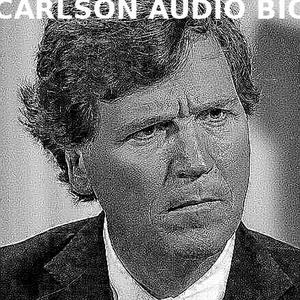
Get the free radio.net app
- Stations and podcasts to bookmark
- Stream via Wi-Fi or Bluetooth
- Supports Carplay & Android Auto
- Many other app features
Get the free radio.net app
- Stations and podcasts to bookmark
- Stream via Wi-Fi or Bluetooth
- Supports Carplay & Android Auto
- Many other app features


Tucker Carlson - Audio Biography
Scan code,
download the app,
start listening.
download the app,
start listening.

